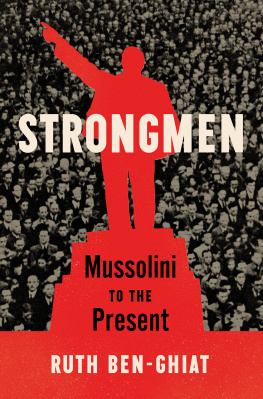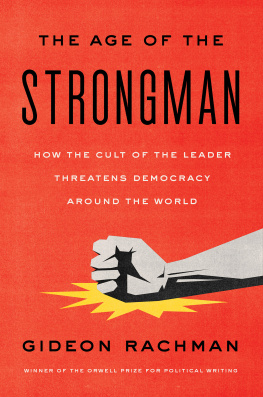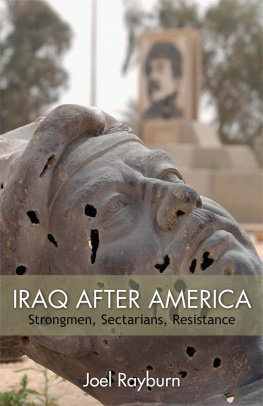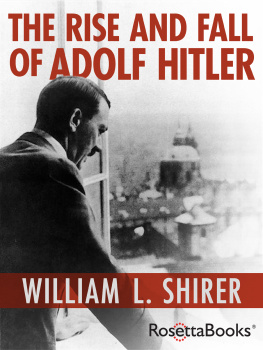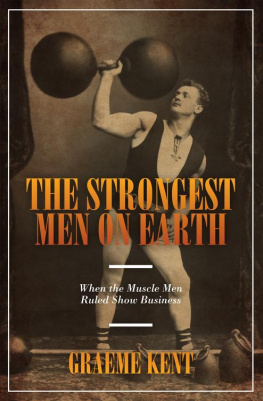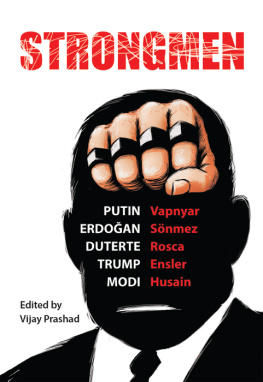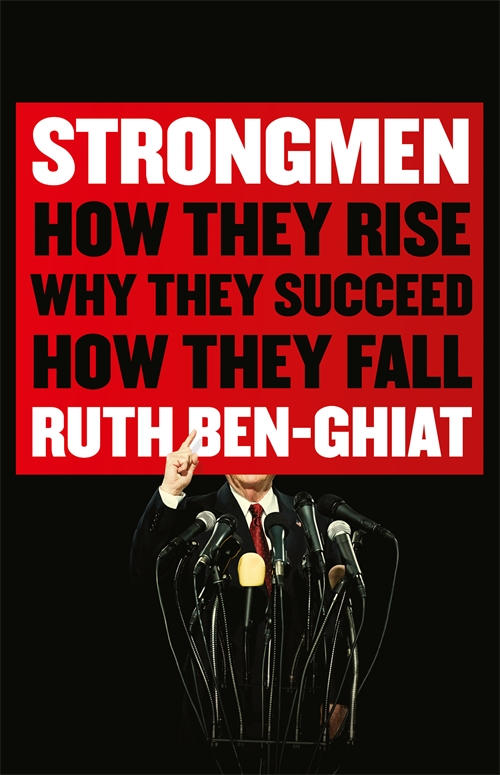Contents
Guide
STRONGMEN
RUTH BEN-GHIAT is Professor of History and Italian Studies at New York University and a political commentator who has received Guggenheim, Fulbright and other fellowships. An expert on fascism, authoritarian rulers, Donald Trump and propaganda, she has written for or appeared on BBC World News, the Washington Post, The New York Times, Sky News, New Yorker and other media outlets.
OTHER WORKS BY RUTH BEN-GHIAT
Italian Fascisms Empire Cinema
Italian Mobilities (edited with Stephanie Malia Hom)
Fascist Modernities: Italy, 19221945
La Cultura Fascista
Italian Colonialism (edited with Mia Fuller)
Gli Imperi: Dallantichit allet Contemporanea (editor)
STRONGMEN
How They Rise, Why They Succeed, How They Fall
RUTH BEN-GHIAT

First published in Great Britain in 2020 by
Profile Books Ltd
29 Cloth Fair
London
EC1A 7JQ
www.profilebooks.com
First published in the United States in 2020 by
W. W. Norton & Company, Inc.
Copyright Ruth Ben-Ghiat, 2020
1 3 5 7 9 10 8 6 4 2
Printed and bound in Great Britain by
Clays Ltd, Elcograf S.p.A.
The moral right of the author has been asserted.
All rights reserved. Without limiting the rights under copyright reserved above, no part of this publication may be reproduced, stored or introduced into a retrieval system, or transmitted, in any form or by any means (electronic, mechanical, photocopying, recording or otherwise), without the prior written permission of both the copyright owner and the publisher of this book.
A CIP catalogue record for this book is available from the British Library.
ISBN 978 1 78816 476 4
eISBN 978 1 78283 478 6

CONTENTS
ACKNOWLEDGMENTS
STRONGMEN REFLECTS A LIFETIME of thinking about authoritarian rulers and their destructive impact on individuals and societies. My seaside hometown, Pacific Palisades, California, was an unlikely place to have birthed a teenagers meditations on regimes and their atrocities. Yet many exiles from Nazism resettled there or in adjacent towns, from the composer Arnold Schoenberg to the writer Thomas Mann. Even in the 1970s and 1980s, their traces were everywhere, inspiring me to learn more about their histories. A seminar on German exiles that I took during my undergraduate studies at the University of California, Los Angeles, taught by the historian Robert Wohl, gave me the historical context. The senior thesis I did on the conductor Otto Klemperers transition from Berlin to Southern California introduced me to the pleasures of working in archives and interviewing people. They have not lost their pull decades later.
This book also draws on my firsthand experience of how the main-streaming of far-right political forces damages democracy. I am grateful to the Fulbright Scholar Program for granting me a fellowship that put me in Rome in 1994 when Silvio Berlusconis center-right coalition brought neo-Fascists into the government for the first time since 1945. I knew Italy well, but felt the political ground shifting under my feet as Italians publicly expressed feelings of nostalgia and admiration for Fascism that they had previously kept private. More than once, I heard shouts of Heil Hitler and Viva Il Duce coming from the German beer hall across the street from my apartment.
Almost two decades later, when Donald Trump began his presidential campaign, I had a similar feeling. Watching Trump retweet neo-Nazi propaganda, call for the imprisonment of Democratic presidential candidate Hillary Clinton, and lead his followers in loyalty oaths at rallies seemed all too familiarand filled me with dread. By then I had published extensively on Italian Fascism, documenting how the regime convinced Italians to see violence as a necessary agent of racial and political cleansing and imperial domination. Drawing on this expertise, in 2015 I began to write opinion pieces to warn the public about the dangers Trump posed to American democracy. By the time he was inaugurated in January 2017, I had mapped out the authoritarian playbook he would use to consolidate power. It is no consolation that my predictions proved accurate. I thank Stefano Albertini, Director of the Casa Italiana Zerilli-Marim at New York University, my colleagues in NYUs history and Italian studies departments, and James Devitt, Managing Director of Public Affairs, NYU, for their support of these activities. Im grateful to my first editors at CNN, Richard Galant and Pat Wiedenkeller, who helped my work reach a wide audience.
This book draws on datasets, archival documents, and scholarship in history, gender studies, political science, visual culture, and more. My most precious sources have been the accounts of people who experienced strongman rule, as told through memoirs, graphic novels, records of police and military interrogations, and interviews. I am also very grateful to the men and women who consented to be interviewed by me for this book. Some of their stories are told publicly for the first time here.
So many colleagues and friends around the world patiently answered my queries and assisted me in myriad ways. This book could not have been written without them. Im grateful to Alan Angell, John Bawden, Mohamad Bazzi, Isak Bengiyat, Giorgio Bertellini, Eliot Bornstein, Nina Burleigh, Randall Bytwerk, Mauro Canali, George De Castro Day, Fred Cooper, Jessica Davidson, Emidio Diodato, Mansour El-Kikhia, Rebecca Falkoff, James Fernndez, Antonio Feros, Federico Finchel-stein, David Forgacs, Mimmo Franzinelli, Mark Galeotti, Alfredo Gonzlez-Ruibal, Stephen Gundle, Benjamin Hett, John Hooper, Ivn Jaksi, Geoffrey Jensen, David Kerzer, Adam Klasfeld, Marwan Kraidy, Jo Labanyi, Olga Lautman, Francesca Lessa, Michael Livingston, Sergio Luzzatto, Nicoletta Marini Maio, Hisham Matar, Christopher Mathias, Molly McKew, Jennifer Mercieca, Enrique Moradiellos, Lee Morgan-besser, Sebastien Mort, Giovanni Orsina, Fraser Ottanelli, Juan Cristbal Pea, Galadriel Ravelli, Gianni Riotta, Roberto Saviano, Laura, Alex, and Fabio Selvig, Richard Steigmann-Gall, Alexander Stille, Mary Helen Spooner, Dirk Vandewalle, Cristian Vaccari, and Stephen Wiley.
Jorge Dagnino invited me to lecture at the Universidad de los Andes and was a wonderful host. I am grateful to Alfo Gonzlez Aguado for facilitating interviews during my stay in Santiago. I thank Barbie Zelizer for bringing me to the University of Pennsylvanias Annenberg School for Communication to teach a course on propaganda. I learned much from the discussions that followed my talks at Stanford University, Northeastern University, SUNY New Paltz, the University of Pennsylvania, the University of British Columbia, James Madison University, and Cambridge University. Diane Coyle, Anwar Fekini, Mia Fuller, Stephanie Malia Hom, Olga Lautman, and Lisa Tiersten generously read portions of the manuscript, and Andrea Chapins careful edits made it much sharper.
I was lucky to have help from research assistants Andrs Fernndez Carrasco, Charles Dunst, Ezel Sahinkaya, Giulio Salvati, and Maysam Taher. Nicola Lucchi did a wonderful job of sourcing images. Alexander Langstaff read the entire manuscript, improving it, and prepared the bibliography.


